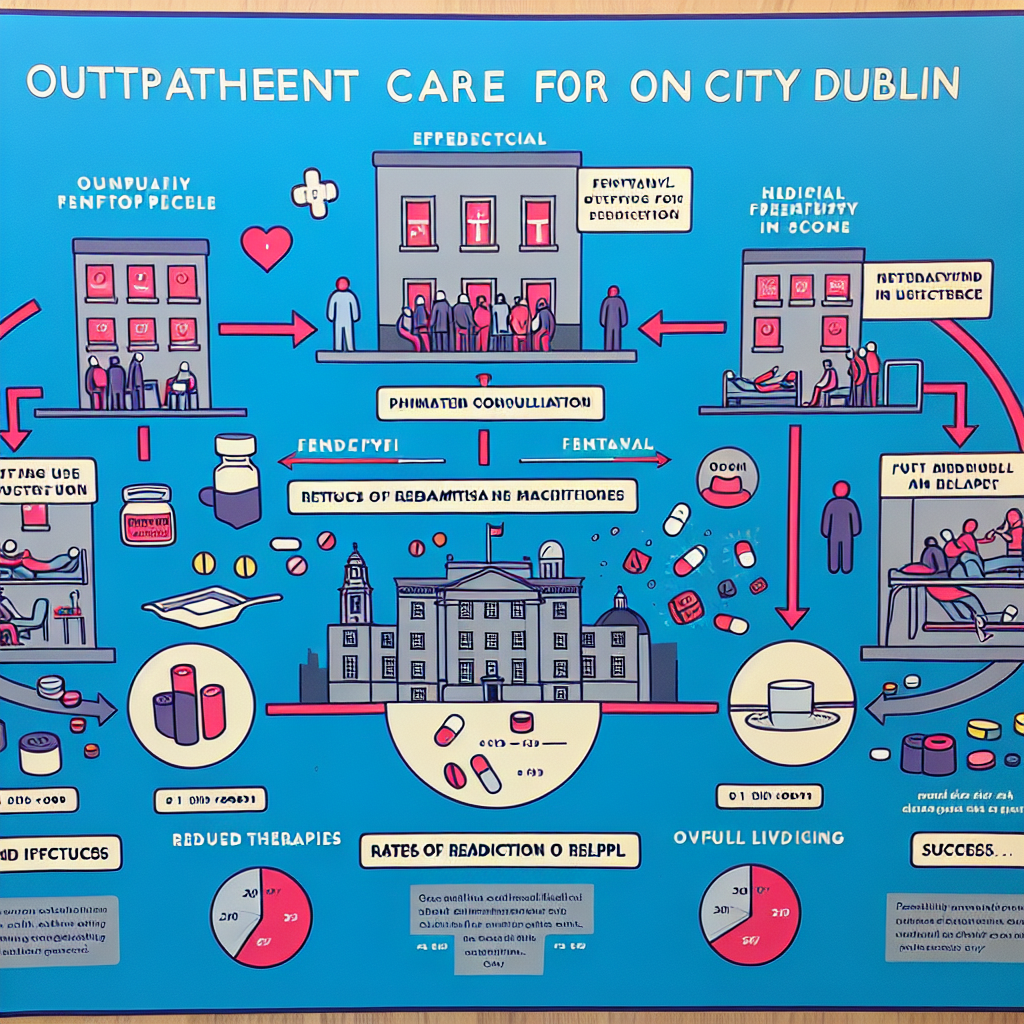-
Table of Contents

“Embrace Wholeness: Healing Beyond Addiction”
Introduction
Holistic treatments for fentanyl addiction recovery encompass a comprehensive approach that addresses the physical, emotional, mental, and spiritual aspects of an individual’s well-being. Unlike traditional methods that primarily focus on detoxification and medication, holistic treatments integrate a variety of therapeutic practices such as acupuncture, yoga, meditation, nutritional counseling, and art therapy. These methods aim to restore balance and promote overall health, helping individuals to not only overcome their addiction but also to build a sustainable, healthy lifestyle. By treating the whole person rather than just the symptoms of addiction, holistic approaches can lead to more enduring recovery outcomes and improved quality of life.
Integrating Mindfulness Practices in Fentanyl Addiction Recovery
In the journey of fentanyl addiction recovery, integrating mindfulness practices can serve as a powerful tool to foster healing and resilience. Fentanyl, a potent synthetic opioid, has wreaked havoc on countless lives, making the path to recovery particularly challenging. However, the incorporation of mindfulness practices offers a holistic approach that addresses not only the physical aspects of addiction but also the mental and emotional dimensions.
Mindfulness, at its core, involves being fully present in the moment, acknowledging thoughts and feelings without judgment. This practice can be particularly beneficial for individuals recovering from fentanyl addiction, as it helps them develop a deeper awareness of their triggers and cravings. By cultivating this awareness, individuals can learn to respond to these triggers in healthier ways, rather than resorting to substance use.
One of the primary benefits of mindfulness in addiction recovery is its ability to reduce stress and anxiety. Fentanyl addiction often leaves individuals in a state of heightened stress, which can perpetuate the cycle of substance use. Mindfulness practices, such as meditation and deep breathing exercises, can activate the body’s relaxation response, thereby reducing stress levels. This, in turn, can help individuals feel more in control of their emotions and less likely to seek solace in fentanyl.
Moreover, mindfulness can enhance emotional regulation, a crucial aspect of recovery. Fentanyl addiction often numbs emotional pain, leaving individuals ill-equipped to handle intense emotions once they are sober. Through mindfulness, individuals learn to observe their emotions without being overwhelmed by them. This practice fosters emotional resilience, enabling individuals to navigate the ups and downs of recovery with greater ease.
In addition to emotional regulation, mindfulness can improve cognitive functioning. Fentanyl addiction can impair cognitive abilities, making it difficult for individuals to concentrate and make sound decisions. Mindfulness practices, such as mindful breathing and body scans, can enhance focus and clarity of thought. By training the mind to stay present, individuals can improve their cognitive functioning, which is essential for making informed choices during recovery.
Furthermore, mindfulness can strengthen the connection between mind and body, promoting overall well-being. Fentanyl addiction often leads to a disconnection from the body, as individuals may neglect their physical health. Mindfulness practices encourage individuals to tune into their bodies, fostering a sense of self-care and compassion. This holistic approach can lead to healthier lifestyle choices, such as regular exercise and balanced nutrition, which are vital for sustained recovery.
Another significant aspect of mindfulness in fentanyl addiction recovery is its potential to build a sense of community and support. Group mindfulness sessions, such as mindfulness-based stress reduction (MBSR) programs, provide a safe space for individuals to share their experiences and learn from one another. This sense of community can alleviate feelings of isolation and provide a network of support, which is crucial for long-term recovery.
In conclusion, integrating mindfulness practices into fentanyl addiction recovery offers a holistic approach that addresses the multifaceted nature of addiction. By reducing stress, enhancing emotional regulation, improving cognitive functioning, and fostering a mind-body connection, mindfulness can empower individuals to reclaim their lives from the grip of fentanyl. As individuals embark on this journey, they can find hope and inspiration in the transformative power of mindfulness, paving the way for a healthier, more fulfilling future.
The Role of Nutrition and Diet in Holistic Fentanyl Addiction Treatment
In the journey toward recovery from fentanyl addiction, a holistic approach can offer a comprehensive path to healing. One crucial yet often overlooked aspect of this approach is the role of nutrition and diet. Proper nutrition can significantly impact the recovery process, providing the body and mind with the essential nutrients needed to heal and rebuild. As individuals embark on the path to sobriety, understanding the importance of a balanced diet can be a powerful tool in their recovery arsenal.
Firstly, it is essential to recognize that addiction often leads to poor dietary habits. The chaotic lifestyle associated with substance abuse can result in malnutrition, as individuals may neglect their nutritional needs. Fentanyl, a potent synthetic opioid, can further exacerbate this issue by suppressing appetite and disrupting normal eating patterns. Consequently, those in recovery may find themselves dealing with deficiencies in vital nutrients, which can hinder their progress and overall well-being.
Transitioning to a nutrient-rich diet can help address these deficiencies and support the body’s natural healing processes. For instance, incorporating foods high in vitamins and minerals can boost the immune system, enhance energy levels, and improve mental clarity. Leafy greens, fruits, lean proteins, and whole grains are excellent choices that provide a wide range of essential nutrients. These foods can help repair the damage caused by addiction and promote overall health.
Moreover, certain nutrients play a specific role in supporting mental health, which is a critical component of addiction recovery. Omega-3 fatty acids, found in fish, flaxseeds, and walnuts, have been shown to reduce symptoms of depression and anxiety. These mental health challenges are common among individuals in recovery, and addressing them through diet can be a natural and effective strategy. Additionally, foods rich in antioxidants, such as berries and nuts, can help combat oxidative stress and inflammation, which are often elevated in those recovering from substance abuse.
In addition to the physical benefits, a balanced diet can also positively impact emotional well-being. The act of preparing and consuming nutritious meals can provide a sense of routine and stability, which is crucial during the recovery process. Establishing healthy eating habits can create a sense of control and accomplishment, fostering a positive mindset. Furthermore, sharing meals with loved ones can strengthen social connections and provide emotional support, which are vital components of a holistic recovery approach.
It is also important to consider the role of hydration in the recovery process. Dehydration can exacerbate withdrawal symptoms and hinder the body’s ability to detoxify. Drinking adequate amounts of water and consuming hydrating foods, such as fruits and vegetables, can aid in flushing out toxins and maintaining overall health. Herbal teas and electrolyte-rich beverages can also be beneficial in supporting hydration and replenishing essential minerals.
While nutrition alone cannot cure addiction, it is a powerful adjunct to other treatment modalities. Combining a balanced diet with therapies such as counseling, support groups, and physical activity can create a well-rounded and effective recovery plan. By addressing the physical, mental, and emotional aspects of addiction, individuals can build a strong foundation for lasting sobriety.
In conclusion, the role of nutrition and diet in holistic fentanyl addiction treatment cannot be overstated. By nourishing the body with essential nutrients, individuals can support their recovery journey and enhance their overall well-being. Embracing a balanced diet as part of a holistic approach can provide the strength and resilience needed to overcome addiction and build a healthier, more fulfilling life.
Q&A
1. **Question:** What are some common holistic treatments used in fentanyl addiction recovery?
**Answer:** Common holistic treatments for fentanyl addiction recovery include acupuncture, yoga, meditation, nutritional therapy, and exercise programs.
2. **Question:** How does meditation help in the recovery process from fentanyl addiction?
**Answer:** Meditation helps in the recovery process by reducing stress, improving emotional regulation, enhancing self-awareness, and promoting relaxation, which can aid in managing cravings and withdrawal symptoms.
Conclusion
Holistic treatments for fentanyl addiction recovery emphasize a comprehensive approach that addresses the physical, emotional, and spiritual aspects of addiction. These treatments often include a combination of traditional medical interventions, such as medication-assisted treatment (MAT), and complementary therapies like acupuncture, yoga, meditation, and nutritional counseling. The goal is to support the individual’s overall well-being and promote long-term recovery by fostering a balanced lifestyle, reducing stress, and enhancing mental health. Holistic approaches can be particularly effective when integrated into a personalized treatment plan, offering a more sustainable path to recovery by addressing the root causes of addiction and empowering individuals with tools for self-care and resilience.



